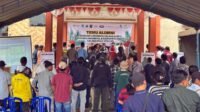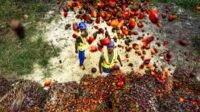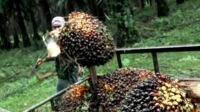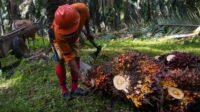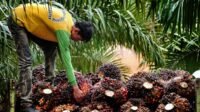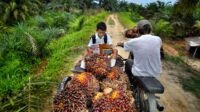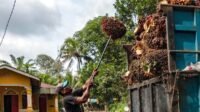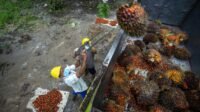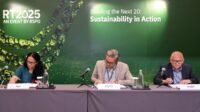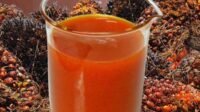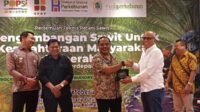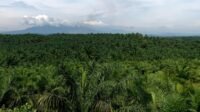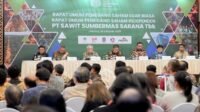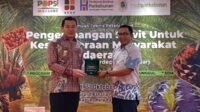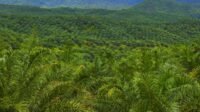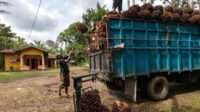PALMOILMAGAZINE, BALI – The 2025 International Conference on Oil Palm & Environment (ICOPE) highlights intercropping as a key strategy in the agro-ecological transformation of oil palm plantations. Held at Bali Beach Convention, Sanur, Bali, the conference carries the theme “Oil Palm Agro-Ecological Transformation: Towards Climate- and Nature-Positive Agriculture.”
Intercropping in oil palm plantations has proven beneficial in enhancing smallholders’ income, maintaining soil health, and supporting biodiversity. However, a major challenge discussed at the conference is the widespread and sustainable adoption of this system.
One significant finding was presented by Aritta Suwarno from Wageningen University, the Netherlands. Her research in Bengkulu involved intercropping oil palm with bananas on 50,000 hectares of land. A total of 112 banana trees were planted per hectare, reaching harvest within 12 months. Bananas were chosen due to their broad market and stable demand.
Also Read: Maximizing Sustainability: Palm Oil Waste Management Cuts Emissions by 95%
“Intercropping with bananas creates new, fairer business opportunities between smallholders and companies while reducing smallholders’ dependency on oil palm alone,” Aritta explained.
Beyond bananas, research also identified watermelon as a promising intercrop. With a harvest cycle of just 65 days, watermelon provides a quicker income alternative for smallholders. Currently, around 150 hectares of oil palm land in Bengkulu are used for watermelon cultivation, yielding promising results.
“We are also facilitating partnerships between oil palm and watermelon smallholders, including funding and market access,” the research team added.
Coffee as an Alternative in Oil Palm Plantations
Besides bananas and watermelon, research suggests that coffee could serve as a viable long-term intercrop in oil palm plantations. Trials in Kalimantan have shown encouraging results when coffee is grown alongside oil palm trees.
While the potential benefits are clear, a key challenge remains: the lack of guidance for smallholders. Many oil palm growers are accustomed to monoculture systems and require proper training to transition effectively to intercropping.
“Intercropping can enhance smallholders’ livelihoods while ensuring the sustainability of oil palm plantations. However, a clear framework is needed, including financial support and market guarantees,” Aritta emphasized.
Researchers and stakeholders at ICOPE 2025 are advocating for stronger regulations and broader support for intercropping systems. They urge the government and private sector to collaborate in providing smallholders with better access to information, financing, and markets.
By embracing intercropping, Indonesia’s oil palm industry can not only improve smallholders’ welfare but also contribute to more sustainable and environmentally friendly agriculture. (P2)





